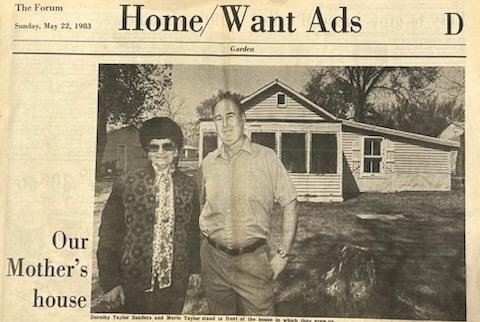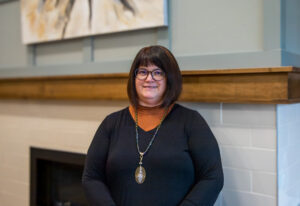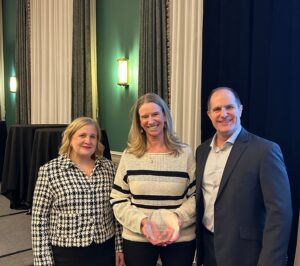Maggie O’Malley has never met anybody who dislikes music.
“You start out as complete strangers, but by singing a song together, you connect,” she says. “There’s something about music that makes someone feel alive inside.”
O’Malley is a board-certified, licensed music therapist at Eventide Jamestown. She is one of three music therapists on staff at Eventide locations across Minnesota and North Dakota.
Her job is to use music to address physical, emotional, cognitive and social needs among residents who live at Eventide. Essentially, she uses music as a doorway to holistic health.
“There’s purpose behind everything we do,” she says.
Music is increasingly used to help seniors increase or maintain their level of physical, mental and social-emotional functioning, according to the American Music Therapy Association. Research shows that the intentional incorporation of music in a therapeutic setting can help a person maintain a quality of life.
O’Malley started at Eventide in March 2020, just as the coronavirus pandemic took hold in the region.
“It was a vulnerable time and residents needed ways to interact that were safe,” she says. To connect with residents, she scheduled one-on-one sessions. Sometimes they sang together or she played a favorite tune on request. Sometimes they just chatted.
Once group activities started meeting again, O’Malley changed her focus. Each week, she now chooses a musical theme that entices residents to participate.
Recently, she focused music therapy activities around songs by Gene Autry, The Singing Cowboy. To encourage recall, she hummed a melody line in front of the group and asked residents to identify the song, “Back in the Saddle Again.” As she led what looked like a simple sing-a-long, she asked residents to share a memory about a time they heard the song “Hey Good Lookin’.” The activity built community and common connections.
“I’m constantly assessing and adapting,” she says.
In addition to leading group activities, O’Malley uses the lull of guitar and the human voice to soothe residents. In particular, some residents with memory loss become agitated and anxious towards the end of the day, a phenomenon known as sundowners syndrome. To counteract the agitation, O’Malley strums chords and may even sing.
“I match their level of intensity and then slowly lower the tempo,” she says. “People train to that beat and start to slow down and become calmer.”
Calm and comfortable residents make it a safer environment for everyone from other residents to the nurses to the CNAs.
Music gives residents an opportunity to process their experiences and to even exercise their bodies. Something as simple as shaking a maraca and singing a song can help residents work on range of motion and strengthen their cognitive skills.
“Whether it’s the lyrics or the rhythm or the melody, music speaks to people of all ages,” O’Malley says.



